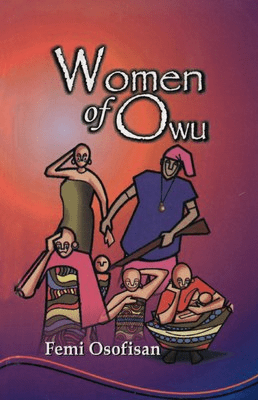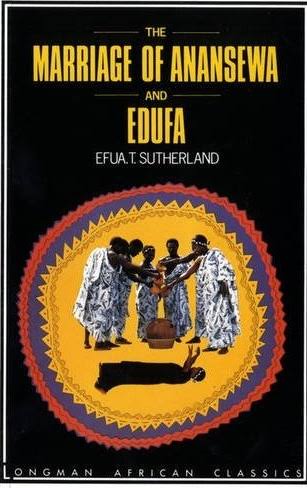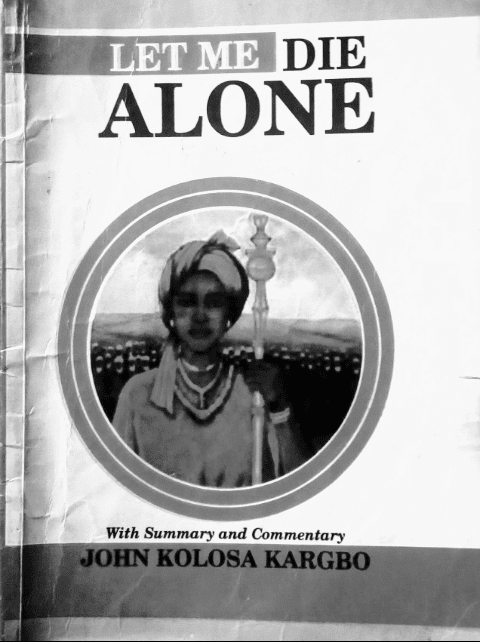Women of Owu is a play written by Femi Osofisan to emphasize the plight of Owu women in the aftermath of the destruction of Owu Kingdom.
The women are subjected to disgrace, humiliation, grief and sorrow in the hands of their conquerors.
The play also provides insight into the cause of the destruction of Owu. It projects through its profiling of Anlugbua and Lawumi the human nature of gods — their vindictiveness, unreliability, and susceptibility to human frailties.
Although an adaptation of Trojan War, the play captures the historic destruction of Owu Kingdom, reputably one of the traditional Yoruba kingdoms.
Before its destruction, Owu is besieged by the Allied forces of Ife and Ijebu warriors and Oyo mercenaries in a seven-year war.
That the war is the result of the intervention of the gods in the affairs of men cannot be overstated. However, human contributions to the escalation of issues that resulted into the war cannot be ignored either.
What plays out in Women of Owu is the traumatic experience of human losses. In the course of plot unveiling, the playwright uses such dramatic devices as chorus, flashbacks, songs, dialogues, and foreshadowing to reflect the traumatic experiences of the women during and after the war.
The chorus for example is used to comment on the actions in the play; provide information on the ongoing events in the play; provide information on past events; and then, encourage the women to brace up for even more challenges.
Plot Summary
Women of Owu is centered on what happens following Owu’s destruction. The city is in ruins, the widows have lost their husbands, and their future is uncertain.
Some of the women have an encounter with a strange man whom they would eventually identify as Anlugbua, their ancestral god. He demands to know why they are in this situation.
They tell him that for seven years, the city was assaulted by the Allied Forces of Ijebu and Ife, and mercenaries of Oyo. They tell him that it was in fact the day before that the soldiers finally destroyed Owu Kingdom.
It is too late for Anlugbua to assist them. Owu is already in its ruins. All but one of their males have been annihilated.
Anlugbua returns to heaven. The women intimate Erelu of their encounter with Anlugbua.
The queen of Owu, Erelu, laments and bemoans Owu’s devastation alongside what is left of the noble women of Owu.
In her grief, Erelu recalls her daughters who were expected to marry princes but whose husbands have already been killed by the allied armies. She has equally lost her sons and daughters in the overwhelming war. She is only left with Orisaye.
The women lament about their uncertain future once more as they prepare to be sold to far-off dealers in Kano, Abomey, and Cape Coast, all the while wearing padlocks on their sagging lips and arthritic feet.
They abound in imaginations of the fate that lies ahead for each one of them.
The women under Erelu’s leadership bemoan their ordeal, blame their captors, and grow pessimistic about their future.
Then, we are introduced to Lawumi. Like Anlugbua, she is an ancestral deity. In fact, she is the grandmother of Anlugbua and the mother of Oba Asunkungbade, the ancestral founder of Owu.
The two deities meet to discuss the tragedy that has befallen Owu Kingdom. Lawumi, the goddess, speaks with her grandson, Anlugbua, about Owu’s condition.
She admits to colluding with the Allied Forces to destroy Owu. Anlugbua is smarted by this admission.
Lawumi holds people of Owu accountable for their problems. She explains that Owu violated the sanctity of the law by waging a sacrilegious war on Ife, a mother town. Owu further violated the law about not selling Yorubas as slaves to foreigners.
She goes on to claim that by waging a sacrilegious war against Ife, a mother town in Yoruba territory, they violated the sanctity of the law. She accuses Owu of being insensitive to history.
Lawumi claims credit for the organisation of the Allied Forces and helping in the destruction of Owu.
She however complains about the desecration and destruction of her shrine by the plundering, triumphant Allied Forces. She claims to have sought the help of other gods. Esu has promised to throw the soldiers into confusion. Orisa Oko would make their return journey difficult and agonizing.
Lawumi wants Anlugbua to send lightning upon the Allied Forces to destroy them on their return journey.
Following the devastation and ruin, the generals retire to their tent to talk about splitting their loot and making their way back home.
Gesinde serves as their spokesperson, performing the role of a go-between for the war generals and the widowed women. It is he who told the women of the capture and humiliating death of King Akinjobi (Erelu’s husband) following the escape of he and his chiefs.
He tells the women that Orisaye (Obatala’s votary and Erelu’s daughter) would be sent to Balogun Kusa, while Erelu herself would be sent to Balogun Derin.
Before Orisaye is taken away to Balogun Kusa as the latter’s new bride, Orisaye prophesies that Balogun Kusa’s death would come by her hands and that Erelu, her dear mother, would die on Owu soil.
Everyone thinks she is mad but later events in the text would eventually prove her right.
Arriving with her child, Adumaadan makes amends with her mother-in-law, Erelu, for all of the family’s misunderstandings.
Thinking the generals would spare the poor boy, Erelu tells Adumaadan to be devoted to her new husband, Otunba Lekki, for the sustained protection of the child.
As they continue to talk, Gesinde enters and declares that Balogun Derin has instructed the generals to crush the child’s head in order to protect their own promising future.
Gesinde tears the infant away from the mother. He takes him away to dispense to him his ominous fate.
When the Maye, Okunade, shows up, he orders his wife, Iyunloye, to leave. The military drags her away.
She is charged with adultery and plotting. She admits to her husband that fate used her as a weapon to carry out a prophecy.
She provides proof of her fidelity to her marital oath. She persuadingly claims to have restored his artwork and redyed it to conform to contemporary standards.
She claims that Erelu, the woman whose son took her in as a wife, had been foretold to kill her son (Prince Dejumo) at infant because he would seduce a woman whose husband would cause the destruction of the City of Owu. However, Erelu refused to kill her son and chose to damn the consequences.
Thus, Iyunloye stylishly extricates herself from any blames from her own end. She heaps the blames on fate and Erelu instead.
Gesinde shows in and tells the women to prepare for a caravan that would eventually leave the destroyed Owu City.
On behalf of the killed Owu heroes and men, the women ask Erelu through their mouthpiece, the chorus leader, to appease the gods and cleanse the country for them before they leave.
When Erelu obliges to their request, Anlugbua, their ancestral god, takes possession of Erelu and judges the people for their treachery and inability to draw lessons from the past.
He acknowledges the women’s regret and plea. He tells them Owu would rise again but not in the form of a defined territory of people collected together.
After the spiritual communication between Anlugbua and the remnants of Owu women, Erelu dies. Her death confirms Orisaye’s prophecy that Erelu would die on Owu soil.
Further Reading:
- Memorable Quotes from Femi Osofisan’s “Women of Owu”
- Themes in Femi Osofisan’s “Women of Owu”
- Characterisation in Femi Osofisan’s “Women of Owu”
 WHATSAPP: Click HERE to join the new Literature PADI WhatsApp group to receive latest updates on your phone and for further literary discussions!
WHATSAPP: Click HERE to join the new Literature PADI WhatsApp group to receive latest updates on your phone and for further literary discussions!











Good literature
keep it up
good job
Great
Comments are closed.